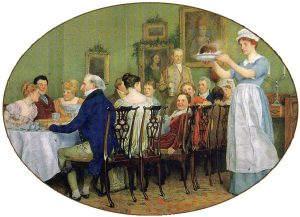Today I’m thinking about a group of older Australian science fiction and fantasy books. I’ve just finished writing them up for a magazine (several articles, will appear sometime in 2022) and I am just emerging from culture shock.
There’s a difference between reading something for fun and reading it with intent to analyse. The ‘intent to analyse’ means I have to delve into how the novel is put together, what it carries with it to the reader and a bunch more. It’s where my historian brain tackles my writer brain for my own work, and where my historian brain meets up with my editor and literary brain when I’m thinking more academically. To be honest, I have no idea if it’s possible to shift between different parts of myself in this way. I pretend I do, though, by changing my vocabulary and approach to the novels and working out which audience I’m writing for. Sometimes I go profoundly wrong in this, especially when I’m writing pure literary studies in the middle of writing novel myself, and editors have saved me from myself several times now.
Back to culture shock. The novel in question is out of copyright, so you can find a free copy and argue with what I’m saying here, or nod sagely, or simply get angry. It’s a good novel, but very much of its time. It’s Erle Cox’s Out of the Silence and was first published (as a newspaper serial) in 1919.
The thing about analysing a novel is that I’ve got to get under its skin and see how it works. This brings me up close and personal. When a story has a group of people who decide that their view of their own cultural superiority means they should commit genocide (as Cox’s novel did) I can’t politely distance myself and say, “Thank goodness I am not that person” and put the book down. I have to understand why the story was told in that way and that means reading deeply into it and analysing it word by word, phrase by phrase, sentence by sentence… I want to list all the different levels of one type of analysis and move on to another and generally prevaricate rather than address this subject. That’s how bad it is when you can’t say “I’m a superior being.”
The big question is, in this instance, why I couldn’t just say “I’m a superior being and this is something I don’t have to worry about.” I’ve seen any number of reviews and articles implying just this.
Firstly, a century later, it’s easy to see Cox’s prejudices. It’s easy to see that those who actually committed genocide were the baddies as Cox intended, but that all the good human beings were equally potentially culpable. It’s not so easy to see my own bias. Who do I condemn to a secondary position when they’re in my vicinity? How do I do this? I can explain Cox’s novel, but I’m in no position to judge Cox.
Secondly, as I said just a moment ago, Cox is of his time. He was born in 1873. During his lifetime his home state went from being a colony to being a part of Australia. In chronological order, during that same life, Ned Kelly (is Australia’s Jesse James a good description? Maybe…) was tried an executed. Women were given the vote. Many, many people Cox would have known would have died in World War I and then from the influenza pandemic after it. The Russian revolution and so many other world events changed the world as he knew it, and he saw so much of it, as a journalist. All of this was before he serialised the novel.
After he serialised the novel the world changed again and yet again. 1873-1950 is a heck of a time for a science fiction writer to live though. By the time the last edition of Out of the Silence was published (1947), Cox had seen more than one attempted genocide. His novel wasn’t prophetic – it simply turned into story what a journalist saw.
That’s the thing. We write science fiction about futures and about strange worlds. They always include us and are always about us. I can’t know if I have Cox’s level of prejudice against some people or his capacity to be honest about racism. I can say, having looked closely at his work, that he intended his novel to reveal uncomfortable truths and to help address them. I doubt if he saw his own biases clearly.
I need someone to analyse my work if I really want to know these things about myself. I do. I want to know.
It’s moments like this when honesty about ourselves when we read and analyse can bring the most uncomfortable truths into daylight, where it’s very hard to ignore them. This is the culture shock. It’s not the first time I’ve suffered from it, and I sincerely hope it won’t be the last. I hope I don’t ‘recover’ from it and bury these truths. Insights may sometimes be terribly uncomfortable, but both my own fiction and myself will be the better for this one.

 We have survived the holidays (they were actually lovely). But this year they required (administrative) flexibility of the sort generally associated with yogis and exotic dancers. Welcome to life in the time of COVID, and do let me know if any of this sounds familiar.
We have survived the holidays (they were actually lovely). But this year they required (administrative) flexibility of the sort generally associated with yogis and exotic dancers. Welcome to life in the time of COVID, and do let me know if any of this sounds familiar.